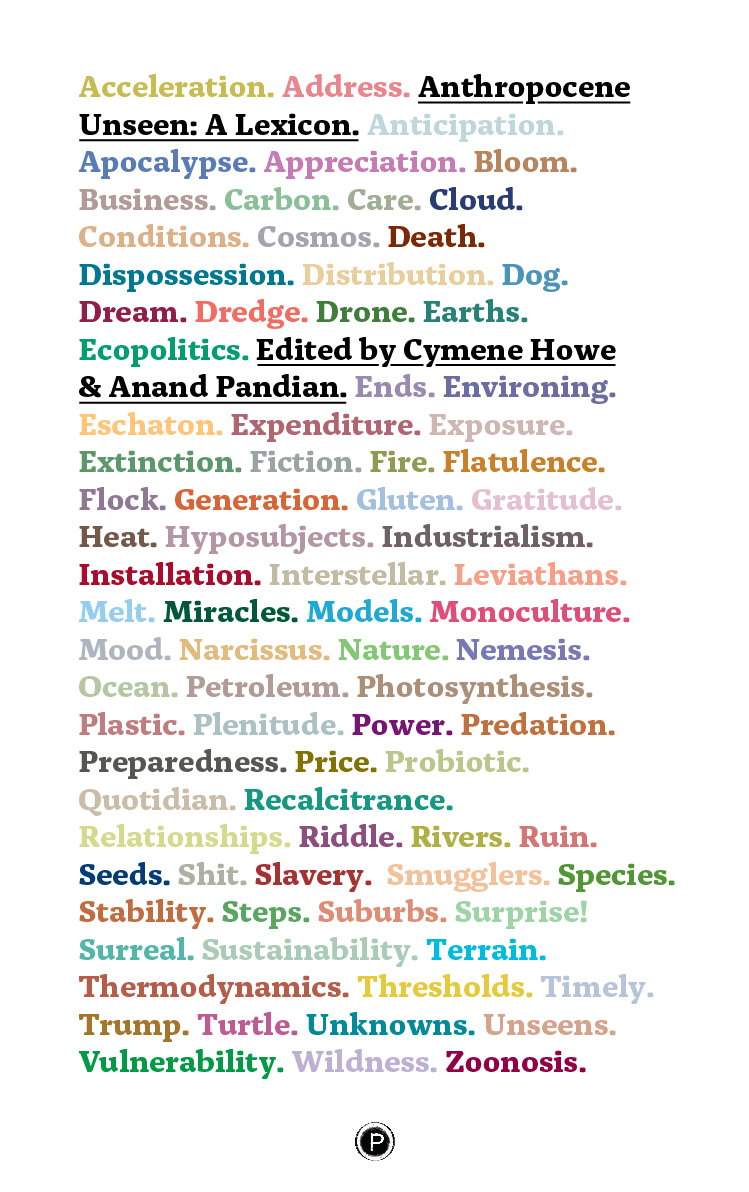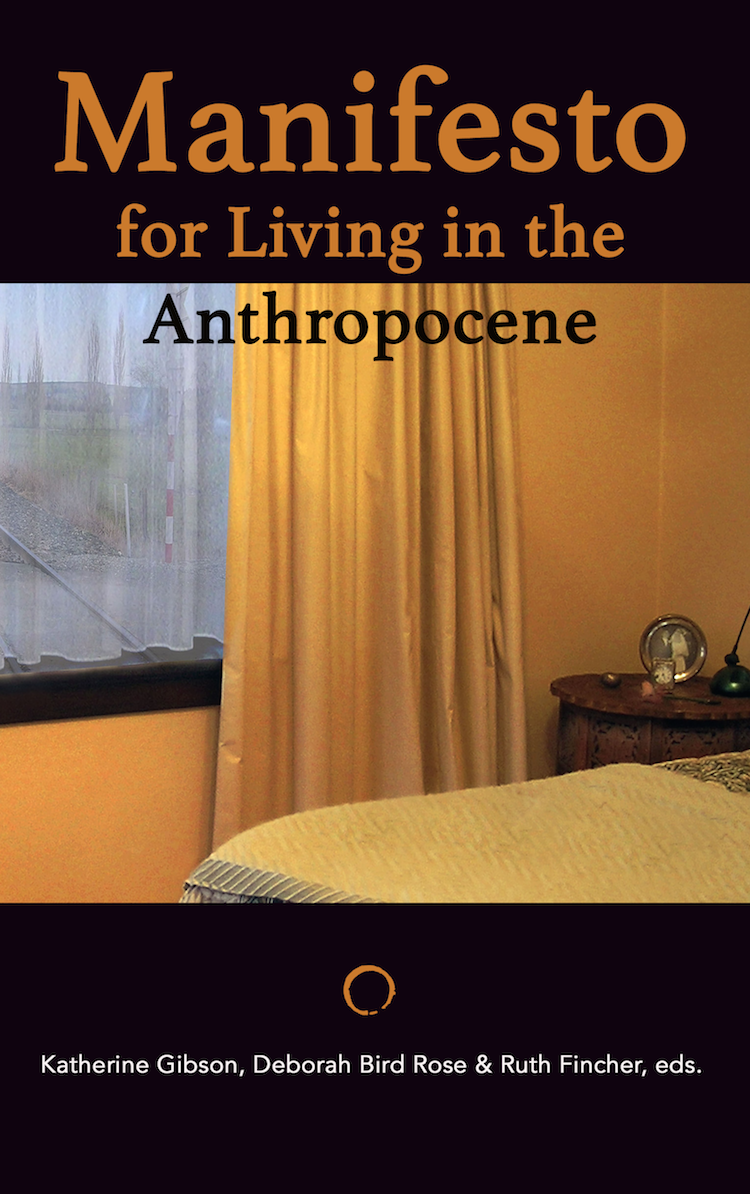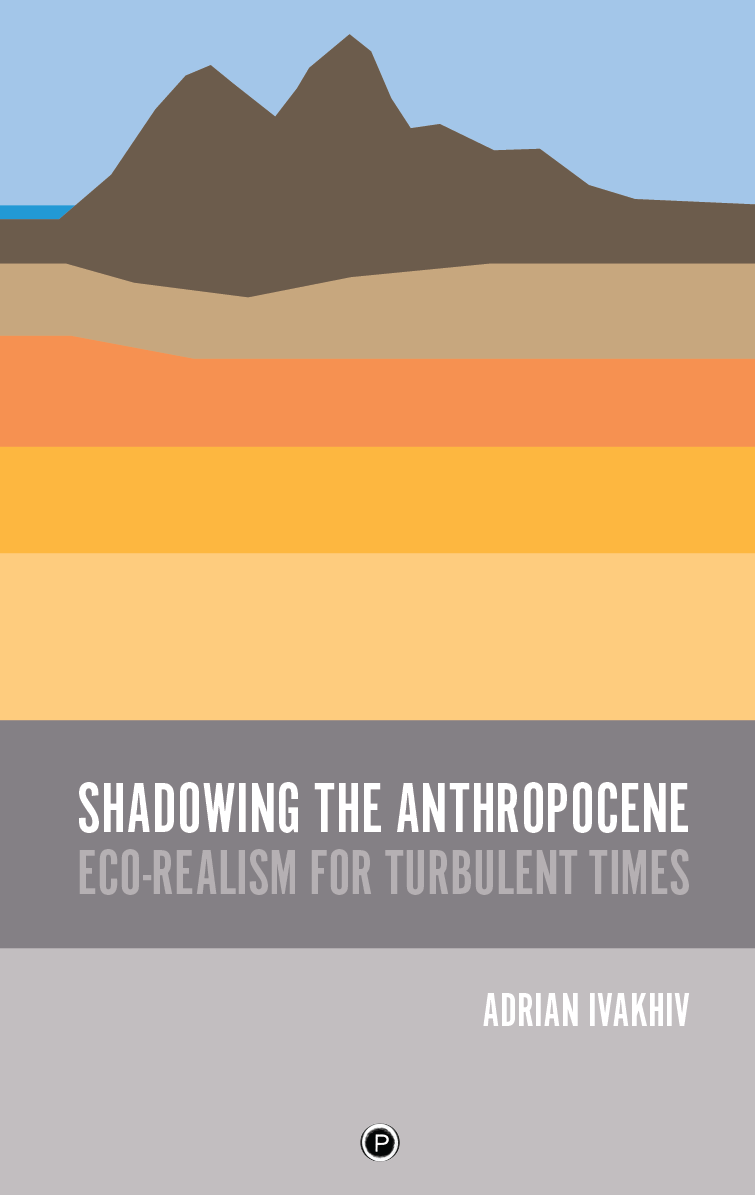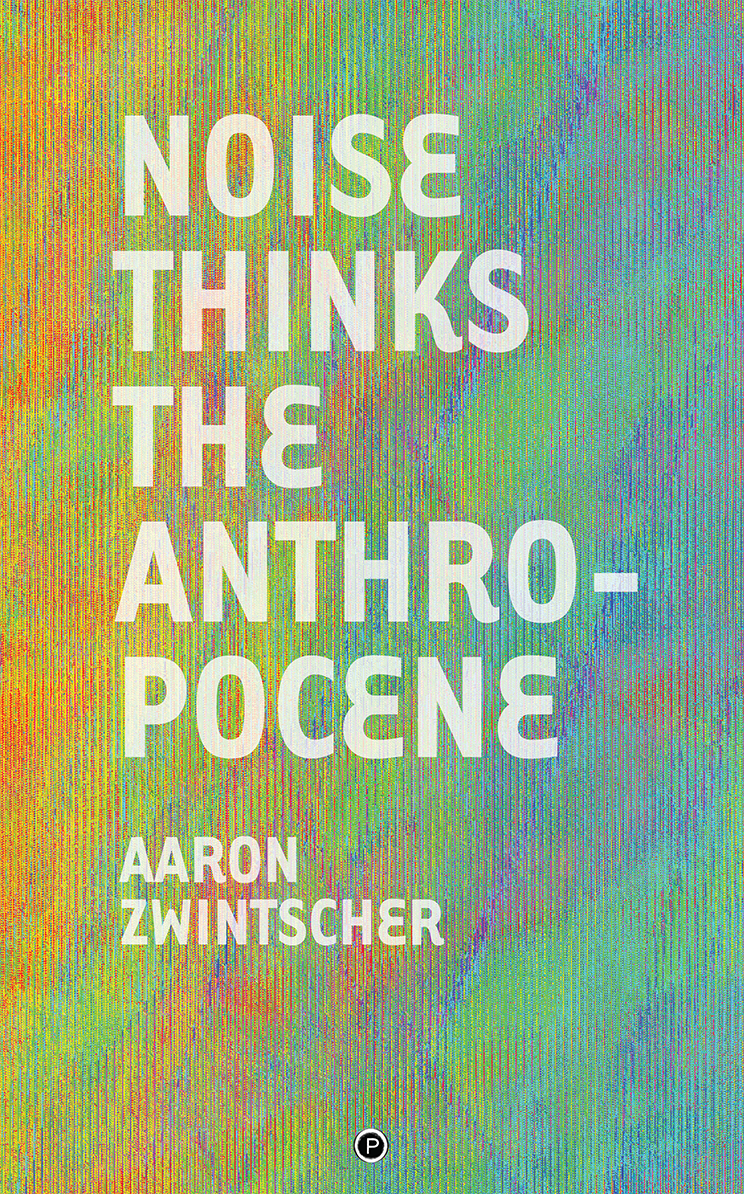
Earth, Milky Way: punctum books, 2020. 545 pages, illus. ISBN-13: 978-1-950192-5-57. DOI: 10.21983/P3.0265.1.00. OPEN-ACCESS e-book and $28.00 in print: paperbound/5 X 8 in.
Edited by Cymene Howe, Anand Pandian
Contributors Matthew Archer, Anindita Banerjee, Jessica Barnes, Debbora Battaglia, Sarah Besky, Vasundhara Bhojvaid, Charis Boke, Dominic Boyer, Craig Campbell, Diego Cagüeñas Rozo, Ashley Carse, Una Chaudhuri, Timothy Choy, Jeffrey Jerome Cohen, Tom Cohen, Claire Colebrook, Cara Daggett, Naisargi N. Dave, Jason De León, Eli Elinoff, Fritz Ertl, Abou Farman, Daniel Fisher, Anne Galloway, María García Maldonado, Rosario García Meza, Alex Golub, Gastón Gordillo, Michael Gossett, Radhika Govindrajan, Dana J. Graef, P. Joshua Griffin, Gökçe Günel, John Hartigan, Maira Hayat, Tracey Heatherington, Stefan Helmreich, Cymene Howe, Vincent Ialenti, Iza Kavedžija, Nicholas Kawa, Frédéric Keck, Oliver Kellhammer, Naveeda Khan, Eben Kirksey, Rijul Kochhar, Eduardo Kohn, Lora Koycheva, Franz Krause, Marcel LaFlamme, Jamie Lorimer, Celia Lowe, Atreyee Majumder, Joseph Masco, Nayanika Mathur, Stuart McLean, Steve Mentz, Audra Mitchell, Timothy Morton, Natasha Myers, Alex Nading, Zoe Nyssa, Michael P. Oman-Reagan, Serpil Oppermann, Anand Pandian, Jonathan Padwe, Andrew Pendakis, Elizabeth Povinelli, Elizabeth Reddy, Joshua Reno, Elizabeth F.S. Roberts, David Rojas, Sophia Roosth, Roy Scranton, Nicholas Shapiro, Smudge Studio, Genese Marie Sodikoff, Nomi Stone, Imre Szeman, Noah Theriault, Ann Marie Thornburg, Rochelle Tobias, Zoe Todd, Jeremy Trombley, Tyson Vaughan, Sarah E. Vaughn, Chitra Venkataramani, Laura Watts, Paige West, Maria Whiteman, Jerome Whitington, Emily Yates-Doerr, Marina Zurkow
Published: 02/07/2020
The idea of the Anthropocene often generates an overwhelming sense of abjection or apathy. It occupies the imagination as a set of circumstances that counterpose individual human actors against ungraspable scales and impossible odds. There is much at stake in how we understand the implications of this planetary imagination, and how to plot paths from this present to other less troubling futures. With Anthropocene Unseen: A Lexicon, the editors aim at a resource helpful for this task: a catalog of ways to pluralize and radicalize our picture of the Anthropocene, to make it speak more effectively to a wider range of contemporary human societies and circumstances. Organized as a lexicon for troubled times, each entry in this book recognizes the gravity of the global forecasts that invest the present with its widespread air of crisis, urgency, and apocalyptic possibility. Each also finds value in smaller scales of analysis, capturing the magnitude of an epoch in the unique resonances afforded by a single word.
The Holocene may have been the age in which we learned our letters, but we are faced now with circumstances that demand more experimental plasticity. Alternative ways of perceiving a moment can bring a halt to habitual action, opening a space for slantwise movements through the shock of the unexpected. Each small essay in this lexicon is meant to do just this, drawing from anthropology, literary studies, artistic practice, and other humanistic endeavors to open up the range of possible action by contributing some other concrete way of seeing the present. Each entry proposes a different way of conceiving this Earth from some grounded place, always in a manner that aims to provoke a different imagination of the Anthropocene as a whole.
The Anthropocene is a world-engulfing concept, drawing every thing and being imaginable into its purview, both in terms of geographic scale and temporal duration. Pronouncing an epoch in our own name may seem the ultimate act of apex species self-aggrandizement, a picture of the world as dominated by ourselves. Can we learn new ways of being in the face of this challenge, approaching the transmogrification of the ecosphere in a spirit of experimentation rather than catastrophic risk and existential dismay? This lexicon is meant as a site to imagine and explore what human beings can do differently with this time, and with its sense of peril.
About the Editors
Cymene Howe is Associate Professor in the Department of Anthropology and founding faculty of the Center for Energy and Environmental Research in the Human Sciences (CENHS) at Rice University. She is the author of Intimate Activism (Duke, 2013) and Ecologics: Wind and Power in the Anthropocene (Duke, 2019). Cymene was co-editor for the journal Cultural Anthropology and the Johns Hopkins Guide to Social Theory, and she co-hosts the weekly Cultures of Energy podcast.
Anand Pandian is Associate Professor in the Department of Anthropology at Johns Hopkins University. He is author of Reel World: An Anthropology of Creation (Duke, 2015) and Crooked Stalks: Cultivating Virtue in South India (Duke, 2009), among other book, as well as the co-editor of Race, Nature and the Politics of Difference (Duke, 2003) and Crumpled Paper Boat (Duke, 2017).





8 thoughts on “Anthropocene Unseen: A Lexicon”